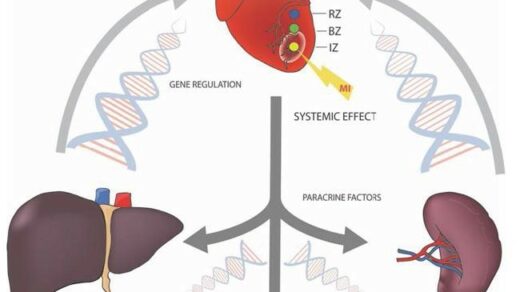“Different treatment strategies are required for the non-muscle-invasive, muscle-invasive, and metastatic stages of bladder cancer.”
Bladder cancer remains a significant clinical concern, with more than 85,000 new diagnoses and nearly 19,000 deaths reported annually in the United States. While current treatments like surgery, chemotherapy, and radiation can be effective for early-stage disease, many patients with advanced or recurrent cancer face limited options.
A recent review, published in Oncotarget by researchers from the University of California, Irvine, analyzes the growing body of evidence supporting the combination of radiation therapy and immunotherapy for bladder cancer. Led by Nazmul Hasan, the work synthesizes clinical data and biological mechanisms that suggest this strategy could enhance anti-tumor responses in specific patient groups.
Understanding Bladder Cancer and Treatment Limitations
The type of treatment for bladder cancer depends on how far the disease has progressed. For early-stage cases, tumors are typically managed with transurethral resection followed by local therapies such as BCG (Bacillus Calmette-Guérin) to reduce the risk of recurrence.
If the tumor has grown deeper into the bladder wall (known as muscle-invasive bladder cancer), more aggressive treatment is needed. This often involves complete bladder removal (cystectomy) or using a combination of radiation, chemotherapy, and surgery to attempt bladder preservation.
Despite these interventions, recurrence remains common, particularly in more advanced stages. Immunotherapy, which helps the immune system recognize and attack cancer cells, has led to improved outcomes in some bladder cancer patients, yet overall response rates are limited. Radiation, while effective for localized tumors, generally does not achieve long-lasting results when used alone. Because of these limitations, researchers are now studying ways to combine treatments, like radiation and immunotherapy, to improve therapeutic outcomes.
Synthesizing Clinical Data
The review, titled “Advancements in bladder cancer treatment: The synergy of radiation and immunotherapy,” focuses on how these two modalities may interact to enhance anti-tumor activity. Radiation is known to induce immunogenic cell death, releasing tumor-associated antigens that stimulate an immune response. Immunotherapy enhances this immune activation by blocking checkpoint pathways—such as PD-1 or CTLA-4—that tumors use to evade immune detection.
The authors highlight several studies and clinical trials that have explored this combination in clinical practice, including BTCRC-GU15-023, ANZUP, and INTACT trials. These trials vary in design but all examine ways to integrate immunotherapy with radiation, either at the same time or sequentially, to evaluate safety and therapeutic potential.
Evidence from Clinical Trials: Potential Benefits and Known Risks
In the phase II BTCRC-GU15-023 trial, patients who were not eligible for surgery or cisplatin-based chemotherapy received radiation in combination with the PD-L1 inhibitor durvalumab. The majority experienced disease control, with over half achieving a complete response. Progression-free survival extended beyond 21 months, and the treatment was generally well-tolerated.
The ANZUP trial, conducted in Australia, tested a combination of pembrolizumab with chemoradiation in patients who opted for bladder preservation or were medically ineligible for surgery. The results showed an 88% complete response rate at 24 weeks. However, serious adverse events occurred in approximately one-third of patients, including a treatment-related death.
INTACT, an ongoing trial, is also investigating whether adding immunotherapy to standard bladder-preserving treatment—combining surgery, chemotherapy, and radiation—can improve outcomes for patients with advanced bladder cancer.
The review also highlights other studies where treatment combinations led to unacceptable toxicity, especially when high-dose radiation was paired with multiple immune-modulating drugs. These findings emphasize the importance of careful dosing and patient monitoring.
Mechanistic Insights: How the Combination Works
Radiation alters the tumor microenvironment by releasing tumor proteins and pro-inflammatory signals. This can increase the inflammation, infiltration and activity of immune cells. Immunotherapy boosts this process by reactivating suppressed T-cells, potentially leading to systemic responses beyond the targeted tumor site—a phenomenon known as the abscopal effect. The review also notes preclinical data suggesting that radiation may enhance tumor visibility and reverse immune evasion.
Implications for Treatment Planning
The review suggests that this combination strategy, radiation and immunotherapy, may be particularly relevant for patients who are not candidates for surgery or traditional chemotherapy. It may also expand the role of bladder-preserving approaches for advanced bladder cancer. However, variability in patient response and the risk of compounded toxicities remain barriers to broader clinical application.
Future Perspectives and Conclusion
While current findings point to potential benefits, the review emphasizes that additional studies are needed before this combined treatment can become standard clinical practice. A major focus moving forward will be identifying which patients are most likely to benefit—possibly through biomarkers such as tumor mutation burden or immune infiltration levels—and refining treatment combinations to reduce toxicity.
By examining the interaction between radiation and immunotherapy, this review contributes meaningfully to ongoing efforts aimed at developing more personalized and effective therapeutic strategies in bladder cancer.
Click here to read the full review in Oncotarget.
_______
Oncotarget is an open-access, peer-reviewed journal that has published primarily oncology-focused research papers since 2010. These papers are available to readers (at no cost and free of subscription barriers) in a continuous publishing format at Oncotarget.com.
Oncotarget is indexed and archived by PubMed/Medline, PubMed Central, Scopus, EMBASE, META (Chan Zuckerberg Initiative) (2018-2022), and Dimensions (Digital Science).
Click here to subscribe to Oncotarget publication updates.
For media inquiries, please contact media@impactjournals.com.



